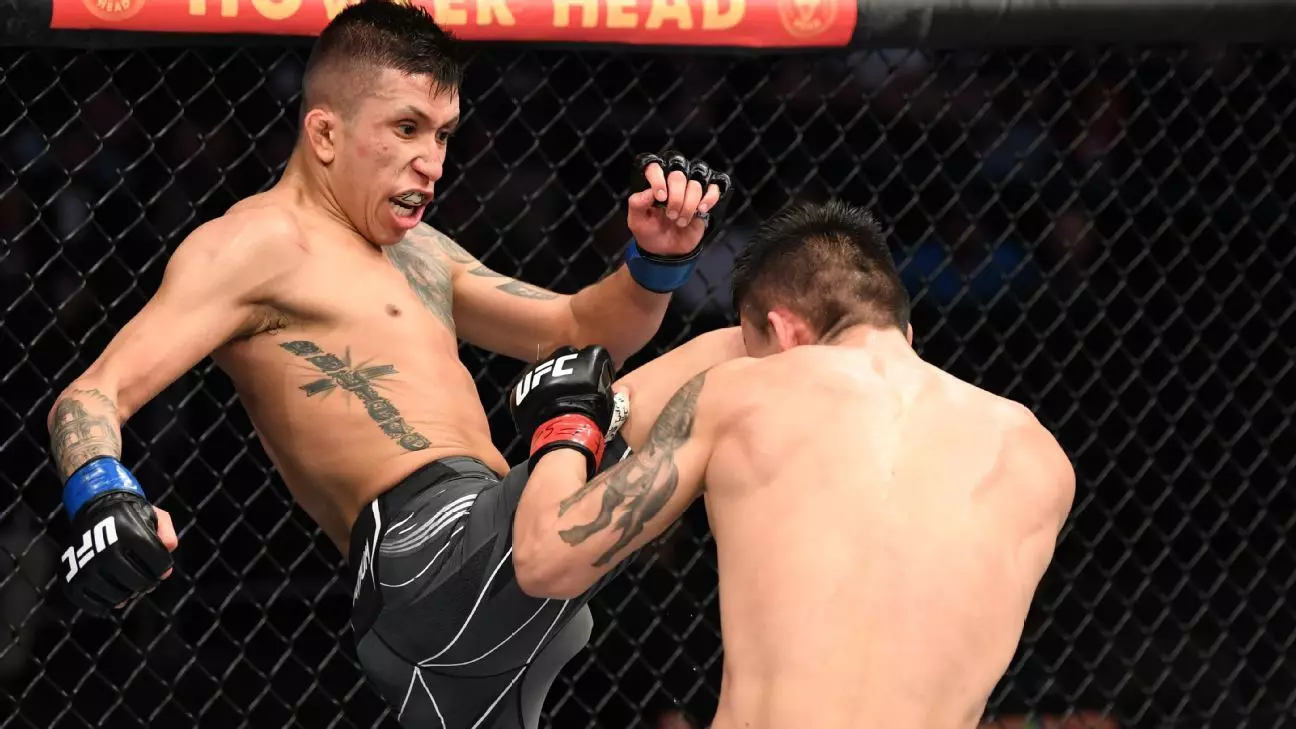The world of mixed martial arts (MMA) is no stranger to controversy, particularly when it intertwines with the high-stakes gambling industry. The recent scandal involving fighter Jeff Molina encapsulates the darker side of this sport, where inside information can distort the integrity of competition. This incident isn’t merely an isolated case; it signifies a potential systemic issue that calls into question the ethics of fighters, trainers, and the very governance of MMA events.
In November 2022, during a UFC bout between Darrick Minner and Shayilan Nuerdanbieke, unusual betting activity raised eyebrows among experts and regulators alike. Molina, then an active UFC fighter, utilized insider knowledge regarding Minner’s undisclosed injury to place significant bets on Nuerdanbieke’s victory. This revelation not only tarnished Molina’s career but also cast a shadow over the credibility of professional MMA itself. Regulatory bodies must take these breaches seriously, lest they propagate a culture of dishonesty that threatens to undermine the sport.
The Role of the Nevada Athletic Commission
The Nevada Athletic Commission (NAC) has a crucial responsibility in regulating combat sports. By investigating betting irregularities and administering penalties to those who violate standards, the NAC aims to maintain the integrity of MMA. In this case, NAC officials acted decisively, suspending Molina for three years upon his admission to ethical violations. The commission’s proactive stance is commendable, yet it raises questions about the regulatory framework in place. Are the current protocols sufficient to deter such misconduct, or do they merely skim the surface?
Molina’s suspension highlights the necessity for stricter accountability measures. While his admission of wrongdoing is a step forward, it signals that merely penalizing offenders is not enough. The NAC must consider more comprehensive reforms that address the culture of gambling influences in MMA, including enhanced transparency in fighter health disclosures and stricter guidelines on trainers and fighters’ relationships with betting entities.
Implications for Fighters and Stakeholders
For fighters like Molina and trainers such as James Krause, the fallout from this incident has been severe. Both individuals face reputational damage, financial repercussions, and a potential career-ending trajectory. Interestingly, Krause has faced scrutiny not only for allegedly facilitating betting activity but also for being linked to offshore bookmaking operations. This severe breach of trust not only undermines individual careers but endangers the sport’s ethical foundations.
The cooperative relationships formed in gyms can lead to an environment susceptible to unethical behavior. When trainers and fighters share close ties with bookies, it creates an ambiguous line between healthy competition and corrupt practices. As athletes evolve into multi-faceted individuals with significant brand value, the importance of maintaining personal integrity becomes imperative. The narrative surrounding this incident must motivate others within the sport to reassess the potential consequences of their actions, ensuring that they always prioritize ethical standards over financial gain.
The Future of MMA Betting Regulations
The MMA community must now grapple with the implications of the Molina-Minner scandal. This event should serve as a catalyst for reforming betting regulations and promoting an ethical atmosphere in the sport. If the UFC and regulatory bodies fail to adopt tighter controls, they risk normalizing corruption, which could deter fans, investors, and future talent from engaging with MMA.
Furthermore, this situation emphasizes the necessity for athletes to receive education on the ramifications of gambling-related misconduct. It’s crucial for promotions to invest in resources that enlighten fighters on the ethical lines they should not cross. Simultaneously, regulatory bodies must act transparently to promote a culture of accountability, thereby restoring stakeholder trust in MMA.
As the dust settles on this scandal, the responsibility lies not only with Molina but also with the entire MMA ecosystem to raise awareness about ethical conduct in the sport. Without proactive measures, the allure of insider information and betting excitement could eclipse the very foundation of fair competition that fans cherish.

